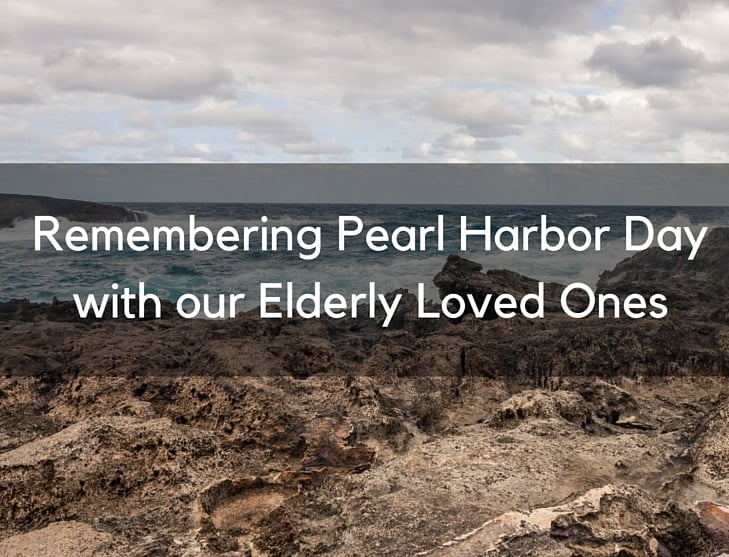
This holiday season, one of the greatest gifts you can give to your elderly loved ones is a listening ear. For most seniors, the opportunity to talk about an important event, person, or experience in their lives is just plain enjoyable, and according to Age Smart, this kind of nostalgia also has some definite therapeutic benefits in senior care. In fact, researchers have discovered that the act of reminiscing can:
-
Reduce boredom
-
Decrease loneliness
-
Cut stress
-
Lessen depression
-
Help deal with traumatic events
-
Reduce fear and sensitivity to the unfamiliar
-
Help preserve memory
Furthermore, encouraging your aging parents to indulge in a bit of nostalgia can be a wonderful opportunity for socialization at an age when many are turning inward and feeling isolated. Research shows that among seniors who live at home, social isolation could run as high as 43 percent and continues to increase, A Place for Mom reports. And the annual remembrance of Pearl Harbor Day on December 7 presents an opportunity for incorporating nostalgia into senior care.
Remembering Pearl Harbor Day
This day, commemorating the heroism and loss suffered by the servicemen and women at the American Naval based located near Honolulu at Pearl Harbor, was one of the defining moments of the twentieth century. Where was your loved one, 74 years ago, when this event occurred? It’s possible that he or she was just a child. Some younger seniors weren’t even born yet. Yahoo! News reports that the last official survivor gathering of the USS Arizona Reunion Association occurred in 2014. However, nostalgia is so important to the four men who attended it—all in their 90s—that they plan to still get together, even if it isn’t in Hawaii.
For your mother, father or other elderly loved one, having someone ask them to share their memories of this world-changing event, even if they were only children or teens, can be just the motivation (and opportunity) a withdrawn senior needs to re-engage.
Fostering Nostalgia
You might be surprised at how vivid you loved one’s recollections are, and how important sharing these memories can be to their senior care. Times Goes By indicates that national events rank high when it comes to encouraging nostalgia. In addition to Pearl Harbor day in 1941, some of the top events include:
-
Life in the Great Depression (1930s)
-
Death of FDR (1945)
-
The assassination of JFK (1963)
-
Man on the moon (1969)
-
9/11 (2001)
Encourage a senior to share by talking, writing a poem, or jotting thoughts down in a notebook. Some who are at ease expressing themselves orally might enjoy a group gathering to talk about the meaning of the day or simply use it as a topic at the lunch table.
There are dozens of ways to encourage a senior in your life to engage in some nostalgia about Pearl Harbor—or any one of these other events. One easy way to begin by simply asking, “Where were you when?” Otherwise, encourage mom or dad to share some of the following:
-
Tokens from childhood community flag displays or parades
-
Recollections of relatives who fought in World War II or subsequent conflicts
-
Memories of a trip to Hawaii
-
Family photos from the 1940s
-
Visits to graves of veterans
-
Reminiscences about a trip to Japan
The Web is a great resource for finding photos and articles about this important event in U.S. history. Be sure to encourage seniors who like to use social media to post something about Pearl Harbor Day and respond to any comments.
All of these sharing topics are adaptable to one-on-one interaction or with groups of at least several people. Nostalgia offers many important benefits to senior care. Chances are, you younger folks will learn something, too, by fostering it.












